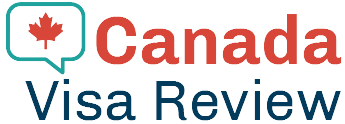Welcome to the awe-inspiring world of the Canadian job market. Known for its robustness and diversity, the job landscape in Canada is a dream for both local and overseas professionals. In this article, we'll delve deep into the highest-paying jobs in Canada, allowing you to understand the lucrative opportunities that await you in the Great White North.
Canada's thriving economy offers many job opportunities across various sectors. More significantly, the country is known for its competitive salaries, excellent work conditions, and inclusive workplaces. Therefore, if you're contemplating a career move or considering relocating, Canada might be the place for you.
This introduction has hopefully set the stage for you, but there's much more. We have compiled Canada's top 10 highest-paying jobs and average salaries to provide detailed insight. The figures mentioned are not mere estimates but are based on the National Occupation Classification (NOC) codes. The Canadian government uses these codes to classify jobs (occupations). Please note that all salary figures are based on the average salary figures in job postings on Indeed Canada.
Top 10 Highest Paying Jobs in Canada

-
Anesthesiologist
National Occupational Classification (NOC) Code: 31100
Average Annual Salary: 358,908 CAD
The highest-paying job in Canada is an anesthesiologist. These medical professionals play an integral role in healthcare, administering anesthesia to patients undergoing surgical procedures. Their high remuneration reflects their pivotal role and the extensive training required to execute it.
Being an anesthesiologist requires high expertise and precision. It's not just about administering the correct dose of anesthesia; it's also about monitoring the patient's vital signs, adjusting the anesthesia as necessary, and ensuring a safe recovery post-surgery.
According to the Canadian Job Bank, the provinces in Canada with the highest demand for anesthesiologists are Alberta, British Columbia, Manitoba, and New Brunswick.
-
Psychiatrist
NOC Code: 31100
Average Annual Salary: 298,065 CAD
Next on the list is the profession of psychiatry. Psychiatrists are doctors specializing in diagnosing, treating, and preventing mental illnesses. Their substantial pay reflects their significant role in healthcare, helping individuals cope with various mental health conditions.
Psychiatrists require an in-depth understanding of the human mind, a knack for empathetic communication, and the ability to make patients feel comfortable. It's a rewarding career financially and personally, as you can make a profound difference in people's lives.
According to the Job Bank, the provinces with the best job prospects for psychiatrists are British Columbia, Manitoba, New Brunswick, and Newfoundland & Labrador.
-
Cardiologist
NOC Code: 31100
Average Annual Salary: 280,591 CAD
Cardiologists, doctors specializing in diagnosing and treating diseases related to the heart and blood vessels, also make it to the list of highest-paying jobs in Canada. Given the increasing prevalence of cardiovascular diseases, they play a crucial role in the healthcare industry.
Cardiology is a demanding field requiring years of education and training. However, the financial rewards and the satisfaction of saving lives make it a highly sought-after profession.
Canada's job bank states that Nova Scotia has a high demand for international medical doctors, and Alberta has a good job outlook for cardiology technologists.
-
Surgeon
NOC Code: 31101
Average Annual Salary: 279,646 CAD
Surgeons, the professionals who perform surgeries to treat diseases, injuries, and deformities, are among the top earners in Canada. Their job involves high precision, expertise, and a deep understanding of human anatomy.
Becoming a surgeon involves rigorous education and training. However, the high remuneration and the opportunity to significantly impact patients' lives make it a desirable career choice.
While surgeons are needed throughout Canada, the Job bank shows that the provinces with the most significant demand are Nova Scotia, Newfoundland & Labrador, Alberta, and New Brunswick.
-
Physician
NOC Code: 31102
Average Annual Salary: 254,847 CAD
Physicians, or doctors, are essential pillars of the healthcare system. They diagnose and treat illnesses, advise preventive care, and refer patients to specialists when necessary. The high salary is a testament to their indelible role in society.
Like surgeons, physicians are in high demand throughout Canada. However, according to the Job Bank, Canada's biggest market for doctors is in Nova Scotia, Newfoundland & Labrador, Alberta, Manitoba, Saskatchewan, and British Columbia.
-
Software Engineering Manager
NOC Code: 20012
Average Annual Salary: 143,044 CAD
Switching gears from healthcare, let's look at the tech industry. A software engineering manager tops the list of high-paying tech jobs in Canada. They oversee the design and development of software systems, proving their worth in today's digital age.
Software Engineer Managers are most needed in Ontario, British Columbia, Quebec, Alberta, and Saskatchewan.
-
Vice President
NOC Code: 00012
Average Annual Salary: 135,578 CAD
Vice Presidents, often second-in-command in organizations, earn high salaries due to their significant roles. They are involved in strategic planning, decision-making, and sometimes, overseeing various departments. There are no specific provinces where vice presidents are required, as they work across multiple industries.
-
Director of Information Technology
NOC Code: 20012
Average Annual Salary: 117,890 CAD
Another high-paying job in the tech sector is the Director of Information Technology. They manage and direct all IT operations and devise strategies to align technology with business goals. The Canadian provinces with the highest concentration of IT jobs are Ontario, Alberta, British Columbia, Quebec, and Saskatchewan.
-
Orthodontist
NOC Code: 31110
Average Annual Salary: 209,373 CAD
Back to the healthcare sector, Orthodontists, specializing in diagnosing and treating dental and facial irregularities, command high salaries. Their job requires precision, skill, and an excellent aesthetic sense. Canada's national dentists industry is most heavily concentrated in Ontario, Quebec, and British Columbia, meaning this is where you will find the most job opportunities. British Columbia has an exceptionally high demand for dental services due to population growth, an aging population, and technological advancement in diagnosis and treatment.
-
Chief Marketing Officer
NOC Code: 10022
Average Annual Salary: 109,196 CAD
Rounding up the highest-paying jobs in Canada is the Chief Marketing Officer (CMO) role. They are responsible for managing and coordinating marketing activities to boost business growth. According to the government's Job Bank, Ontario, Quebec, Manitoba, and Saskatchewan are the provinces with the highest demand for advertising, marketing, and public relations managers. Marketing job prospects are also fair in British Columbia, Alberta, Nova Scotia, New Brunswick, and Yukon.
How to Get a Job in Canada

Now that you've learned about the highest-paying jobs in Canada, you must be wondering how to land one. The application process is relatively simple. However, there are several steps to ensuring you're adequately prepared for the Canadian job market. They are as follows:
Step 1: Apply for a Social Insurance Number (SIN)
A SIN is a nine-digit number required to work in Canada, file income tax, or access government benefits and programs. You can apply for a SIN online through the Government of Canada website.
Step 2: Check if Your Qualifications are Valid
Before applying for jobs, check if your qualifications are valid in Canada. You may need to get your credentials assessed or take additional courses to meet Canadian standards.
Step 3: Search Canada's In-demand Jobs List
The Canadian government publishes a list of in-demand jobs needed in the country. This can help you focus your job search on areas with a high worker demand.
Step 4: Search Online Job Vacancies
There are many job boards and websites where you can search for job vacancies in Canada. Some popular job boards include the Job Bank, Indeed, and LinkedIn.
Step 5: Network With Professionals
Networking is an integral part of the job search process in Canada. Attend job fairs, join professional associations, and connect with people in your industry to expand your network.
Step 6: Meet Canada's Linguistic Proficiency Standards
Depending on the job you are applying for, you may need to meet Canada's linguistic proficiency standards in English or French. This may involve taking language tests such as the International English Language Testing System (IELTS) or the Canadian English Language Proficiency Index Program (CELPIP). Learn more about Canadian immigration language requirements.
Step 7: Write a Canadian-style CV
A Canadian-style CV differs from one in other countries. It should be concise, easy to read, and highlight your relevant skills and experience. You can find templates and examples online to help you create a Canadian-style CV.
Step 8: Visit Employers and Apply in Person if Possible
If you are in Canada, consider visiting employers to drop off your resume and cover letter. This can help you make a personal connection with the employer and stand out from other applicants.
Step 9: Gather and Submit the Required Documents and Apply
Once you have found a job you are interested in, gather and submit the required documents and apply. This may include your resume, cover letter, references, and other documents the employer requests.
A Work Permit Canada: What You Need to Know

Once you've landed your job in Canada, you'll need a work permit to work legally if you're not a Canadian citizen or permanent resident. To get a Canadian work permit, you must follow certain steps and meet specific eligibility requirements. Here is a guide on how to obtain a Canadian work permit:
Step 1: Check Which Visa You Require
Different work permits are available in Canada, such as employer-specific and open work permits. You should determine which type of work permit you need based on your situation.
Step 2: Ensure Your Eligibility
To be eligible for a work permit, you must meet specific requirements, such as proving that you will leave Canada when your work permit expires and showing that you have enough money to support yourself and your family during your stay in Canada. You should review the eligibility requirements for the work permit you are applying for.
Step 3: Create Your Application
You must complete an application for a work permit, including personal information, details about your employment, and other supporting documents. Before starting your application, you should have all the necessary information and documents.
Step 4: Pay Your Fees and Submit Your Application
You must pay a fee when you apply for a work permit. The fee amount depends on the type of work permit you are applying for and whether you are applying alone or as part of a group. Once you have paid your fee and completed your application, you can submit it to the appropriate Canadian visa office.
If you need a work permit to land one of these high-paying jobs, learn more about how to get a Canadian Work Permit.
Canada offers a plethora of high-paying jobs across various sectors. Whether you're interested in healthcare, technology, or corporate roles, there's a high-paying job waiting for you in Canada. As you pursue these lucrative opportunities, remember the importance of skills, qualifications, and the proper work permit if you're an overseas professional.
FAQs
What Should I Expect During a Job Interview in Canada?
During a job interview in Canada, you should be prepared to speak about your motivation for moving to Canada and how long you plan to stay. You should also be ready to answer questions about your skills and attributes, the types of training offered, and opportunities for advancement.
Can International Students Work in Canada After Graduation?
Yes, international students can stay in Canada and work for up to three years after graduating with a Post-Graduate Work Permit (PGWP). After working in Canada for one year, international graduates may be eligible to apply for permanent residency. However, to apply for a PGWP, you must prove that you have respected all the conditions of your study permit. Learn more about the PGWP.
